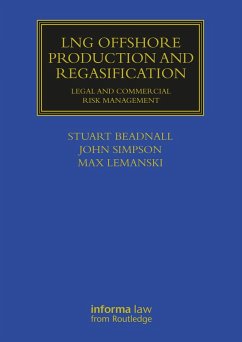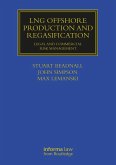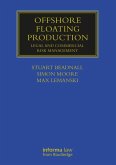The book draws on the relevant maritime and commercial law, applying this with specific focus on the requirements of offshore facilities liquefying, carrying and storing a cargo at -162°C, then regasifying and transferring the same onshore. The contracts relating to the operation of these facilities mirror some aspects of conventional LNG vessel charters but include important additional features specific to offshore LNG operations. The discharge of LNG from a sea-going vessel into a receiving floating, storage and regasification unit (FSRU) (and the storage and regasification of LNG into the receiving pipeline) may be problematic and lead to significant commercial consequences if there is underperformance. The allocation of related risks as between the LNG owner and the FSRU operator and other interested parties is analysed in this book. The authors also consider the specific legal issues pertaining to production of LNG offshore in a floating facility (FLNG), and the role of LNG as a transition fuel used to meet current low-carbon targets.
This book will be invaluable to legal practitioners advising clients engaged in developing and operating offshore LNG projects, project managers and related insurers, financiers and commercial parties. It will also be of direct relevance to gas production, distribution and utility companies, and to maritime commercial centres.
Dieser Download kann aus rechtlichen Gründen nur mit Rechnungsadresse in A, B, BG, CY, CZ, D, DK, EW, E, FIN, F, GR, HR, H, IRL, I, LT, L, LR, M, NL, PL, P, R, S, SLO, SK ausgeliefert werden.









